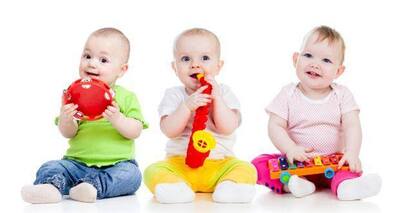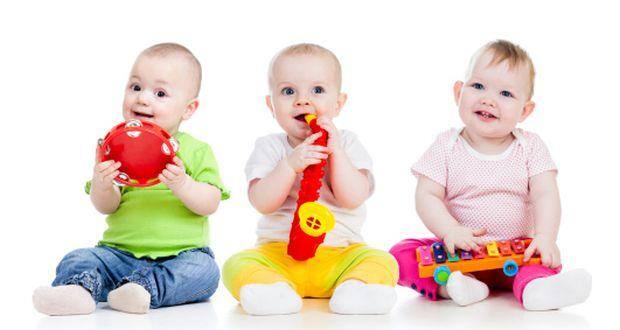Don’t Miss Out on the Latest Updates.
Subscribe to Our Newsletter Today!
10 things you should think about before buying for your baby

Things you should never buy for your baby
 So your new born has arrived and you have made a comprehensive shopping list to get all the baby essentials at one go. But before you start to splurge, wait and think. Does your baby need all that is there on offer at the baby store? If you don't have a definite answer read on to know about things you should never buy for your newborn or at least limit its usage. These products though make life a lot easier but come with some perils.
So your new born has arrived and you have made a comprehensive shopping list to get all the baby essentials at one go. But before you start to splurge, wait and think. Does your baby need all that is there on offer at the baby store? If you don't have a definite answer read on to know about things you should never buy for your newborn or at least limit its usage. These products though make life a lot easier but come with some perils.
Here goes your 'not-to-buy' list.
Walkers: Did you know that prolong use of walkers can hamper the bone development in the legs and hips of your growing baby?'Your baby doesn't need a walker but instead vitamin D from the sun and calcium from foods to develop strong bones and limbs to start walking soon. Babies start to walk without any support by 13 months of age. From around nine months onwards they can stand holding on to the sofa or the bed and take their first baby steps with some help. Parents often rush to buy a walker at this stage to make the process easy and fast. But putting your child into a walker is going to cause harm than any good as mentioned before,' cautions Dr Rohit Agarwal, past president of the Indian Association of Pediatrics attached to Chandrajoyti Children's Hospital, Mumbai. In fact due to the hazards these walkers pose to baby's natural development many countries in the west like UK, Canada has banned the use of walkers for babies.
Also Read
Pacifier: 'They can lead to nipple confusion; hinder development of the oral cavity and teeth alignment in future, lead to colic and a host of other infections,' says Dr Agarwal. Before you pick up this product just ask yourself why you need it. If you are picking up a pacifier because you want to free yourself from the demands of comfort suckling or soothe baby during teething it isn't a very bright idea. A pacifier can help your baby soothe the aching gums and suckle for comfort but it has some hidden dangers attached to it with those instant solutions. Know how to deal with your baby's colic.
Feeding bottles: Mommies don't freak out at this. But believe us feeding bottles do a lot of harm to your baby than any good. Though there are recent studies that suggest that they aren't as harmful as thought by the experts, but they still aren't the best substitute of your breast. 'One reason that you should not give the bottle is that your baby would suckle in large amounts of air along with the feed, which can then lead to colic. Also there is always a chance of infection with bottle feeding in case the bottles aren't sterilized properly or the feeding nipple is contaminated,' says Dr Agarwal. If at all you need to use feeding bottles make sure they are BPA-free and limit the usage to one or two feeds while you are out with your baby. Know the top 10 reasons why breastfeeding is better than bottle feeding.
Electronic gadgets: They can cause damage to the cells in the brain. Sure you are not going to buy your newborn a mobile but limit its exposure to your baby. For the same reasons don't use a tablet or iPad to read poems or short stories, invest in baby books. Limiting your own usage of gadgets at home especially around your baby will help them learn more from the environment sans the interference of harmful rays.
Gripe water: Many parents swear by this but not all doctors recommend using gripe water, even for a baby with colic. 'Parents should refrain from using gripe water for babies, the ingredients used in the gripe water or also janam gutti, a traditionally used mixture for treating colic can in fact irritate the baby's innards,' says Dr Agarwal. If you are still optimistic on using gripe water for your baby talk to your pediatrician before buying one over the counter. Try not to give newborn babies gripe water unless advised by your pediatrician.
Kajal or kohl: Whether applying thick kajal or kohl under your baby's eyes will ward off evil spirits is not known scientifically but it can cause those delicate orbs great damage. 'Chemicals in these cosmetic products can cause allergic reactions in the eyes and interfere with your baby's eye health,' says Dr Agarwal. Read 10 ways to keep your baby's eye safe.
Diapers: Wondering how another of the baby essential item made it to this list? Well what experts suggest is that it would be ideal to keep baby off diapers and toilet train naturally. The mess would be bothersome for mothers, but being off diapers will help baby breathe easy and help keep painful diaper rashes at bay. 'Practically this isn't possible. So at least keep your baby off diapers while at home,' says Dr Agarwal. Know what causes diaper rashes.
Stuffed toys: We aren't telling you to ban them totally. But keep it off your newborn at least. The fur shed by these toys can give rise to breathing problems in babies and can also lead to SIDS (Sudden infant death syndrome). Keep stuffed toys away from your toddler while sleeping to avoid any incidence of suffocation by accident. Know more about what causes SIDS.
Expensive fancy clothes: Cotton jhablas are the best bet for your babies. Do not get tees or dresses that need to be worn over the neck of your new born. Even with all your care and attention there can be unavoidable accidents.
Baby toiletries: Babies smell good by birth naturally. Don't lather baby lotion or be tempted to use too much baby powder. The powder, if inhaled by your baby can reach the lungs and result in breathing troubles or irritation. Similarly lotions even with herbal ingredients can trigger skin rashes or allergies. As a thumb rule stay away from baby products that are high on fragrance, they are bound to be heavy on chemicals and allergens.
You may also like to read:
- Decode your baby's motions
- Which of these 9 reasons are making your baby cry?
- Is your baby teething? Here's what you should expect
- Try these tips to put your baby to sleep
- 5 reasons why crying is good for your baby
- How to manage your baby's colic
- 8 important weaning foods for your baby
- 12 super foods that boast immunity in kids
- 5 tips to prevent diaper rashes
For more articles on baby care, visit our pregnancysection. Follow us on Facebook and Twitter for all the latest updates! For daily free health tips, sign up for our newsletter. And to join discussions on health topics of your choice, visit our forum.


